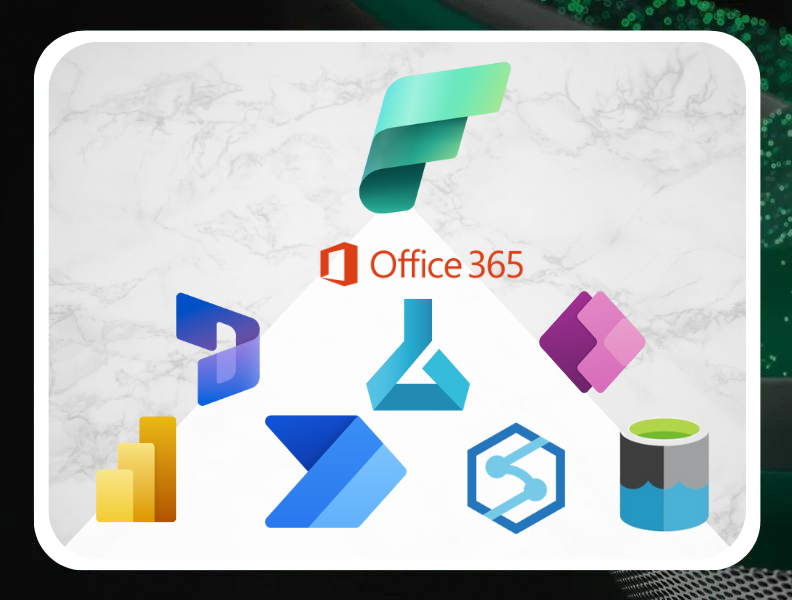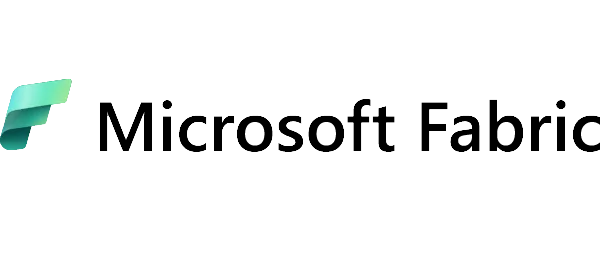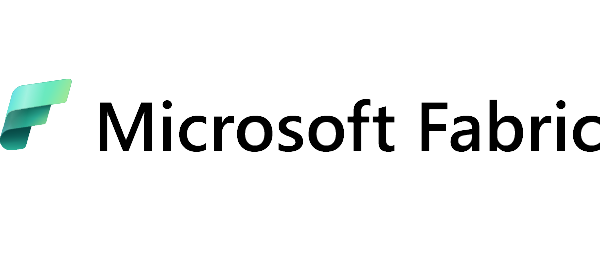
Internal integrations in MS Fabric are processes that enable centralized management and analysis of data from various Microsoft ecosystem tools. Thanks to these integrations, organizations can efficiently combine data and create consistent, easily accessible sources of information on a single panel. Such a system makes information management faster, more effective and supports the work of entire teams, regardless of whether they are involved in data analysis, sales, finance, or management.
Key Microsoft tools integrated with MS Fabric
Microsoft Fabric integration with Power BI
One of the most important tools that work with MS Fabric is Power BI. Thanks to this integration, users have the ability to visualize data collected in Fabric, which allows for the creation of dynamic reports and dashboards. Power BI allows the use of interactive charts and analytical tools that support making important business decisions. Integration with MS Fabric makes data from various sources easily available in one place, which reduces the need for manual entry and facilitates the work of analytical teams.
Microsoft Fabric integration with Azure Synapse Analytics
Azure Synapse Analytics is an advanced analytics platform that enables processing of large amounts of data. In MS Fabric, this platform supports data transformation and modeling, providing advanced analytical capabilities. Integration with Azure Synapse allows companies to process huge data sets in a fast and scalable way, which is extremely important for organizations analyzing large amounts of information from many sources.
Microsoft Fabric integration with Microsoft Dynamics 365
Integration of MS Fabric with Microsoft Dynamics 365 enables centralized management and analysis of data from CRM and ERP systems. Thanks to this, you can analyze and report key sales, financial and operational data in one environment. Such cooperation allows for a better understanding of customer needs and increased efficiency of internal processes, influencing the overall strategy of the company.
Microsoft Fabric Integration with Microsoft 365: Excel, SharePoint, Teams
MS Fabric also works with Microsoft 365 tools, including Excel, SharePoint and Teams, which further streamlines everyday work.
- Excel – MS Fabric integration enables data analysis and processing directly in Excel, allowing users to leverage familiar spreadsheet features to work with more advanced analyses.
- SharePoint – MS Fabric enables you to store and share data and documents in SharePoint, which facilitates collaboration between teams. Documents and data can be accessed by different departments, while being stored in a secure environment.
- Teams – Integration with Teams enables real-time communication, sharing of analysis results, and collaboration on reports directly in Teams. This allows teams to work effectively, discussing their results and making corrections in real time.
Microsoft Fabric integration with Azure Data Lake
Azure Data Lake is a comprehensive big data storage service designed for scalable data storage and analysis. In MS Fabric, it plays a key role as a central data repository, where a variety of data from different sources is collected. Although Data Lake is primarily used as a data warehouse, it can be integrated with the advanced Lakehouse concept, which combines the features of a data lake and a data warehouse, enabling the implementation of comprehensive analyses using tools such as Azure Synapse.
Microsoft Fabric integration with Power Apps
Power Apps allows you to create business applications that are directly integrated with data processed in MS Fabric. This allows organizations to automate tasks, adapting applications to their needs. This integration also allows you to personalize business solutions, which allows you to better respond to the specific needs of the company and increases the efficiency of operational activities.
Microsoft Fabric integration with Power Automate
Power Automate is a business process automation tool that, when integrated with MS Fabric, enables the creation of automated workflows, such as data entry, processing, and transfer between different systems. By automating repetitive tasks, teams can focus on more strategic activities, which contributes to increased organizational efficiency.
Microsoft Fabric integration with Azure Machine Learning
Azure Machine Learning integration with MS Fabric enables the deployment and management of machine learning models. This tool supports the creation of advanced analytics and predictive models that can be applied in various fields, such as sales, marketing, or production optimization. With this integration, organizations can better predict outcomes and make more informed business decisions.
Benefits of internal integrations in MS Fabric
Internal integrations in MS Fabric bring a number of benefits that translate into more effective data management and streamlining of daily operational activities within the company.
- Simplified data flow – internal integrations enable smooth data exchange between different Microsoft tools, which reduces errors resulting from manual data entry and improves access to key information.
- Collaboration and communication – MS Fabric integration with Microsoft Teams allows for real-time teamwork, sharing analysis results and reports directly in conversations, which promotes better communication and increases the effectiveness of cooperation.
- High level of security – data access and security management with Azure Active Directory gives companies full control over access to information, which is crucial for protecting sensitive data.
Examples of MS Fabric integration with other Microsoft tools
MS Fabric internal integrations are widely used in various departments and business processes. Here are some practical examples:
MS Fabric is a comprehensive solution that enables internal integration of various Microsoft tools, such as Power BI, Azure Synapse Analytics, Dynamics 365, Microsoft 365 and many others. Thanks to integrations, companies can effectively manage data, automate processes and communicate better internally. For organizations that want to streamline their operations, MS Fabric is an invaluable support in creating a consistent work environment.
Take advantage of the potential of internal Microsoft tool integrations and improve data management, process automation, and team collaboration.
Contact us today – our experts will help you implement solutions tailored to your business needs and answer all your questions.



